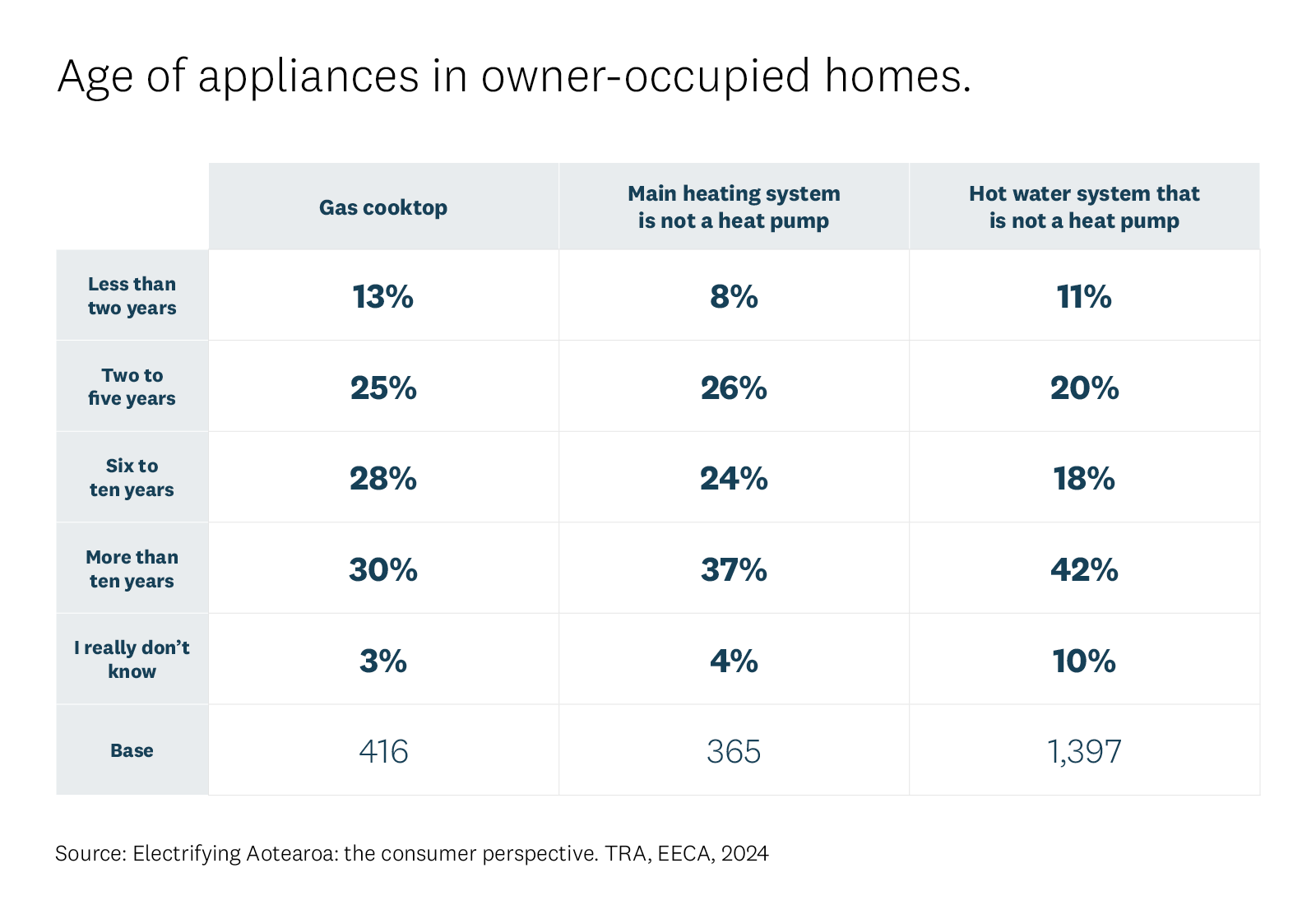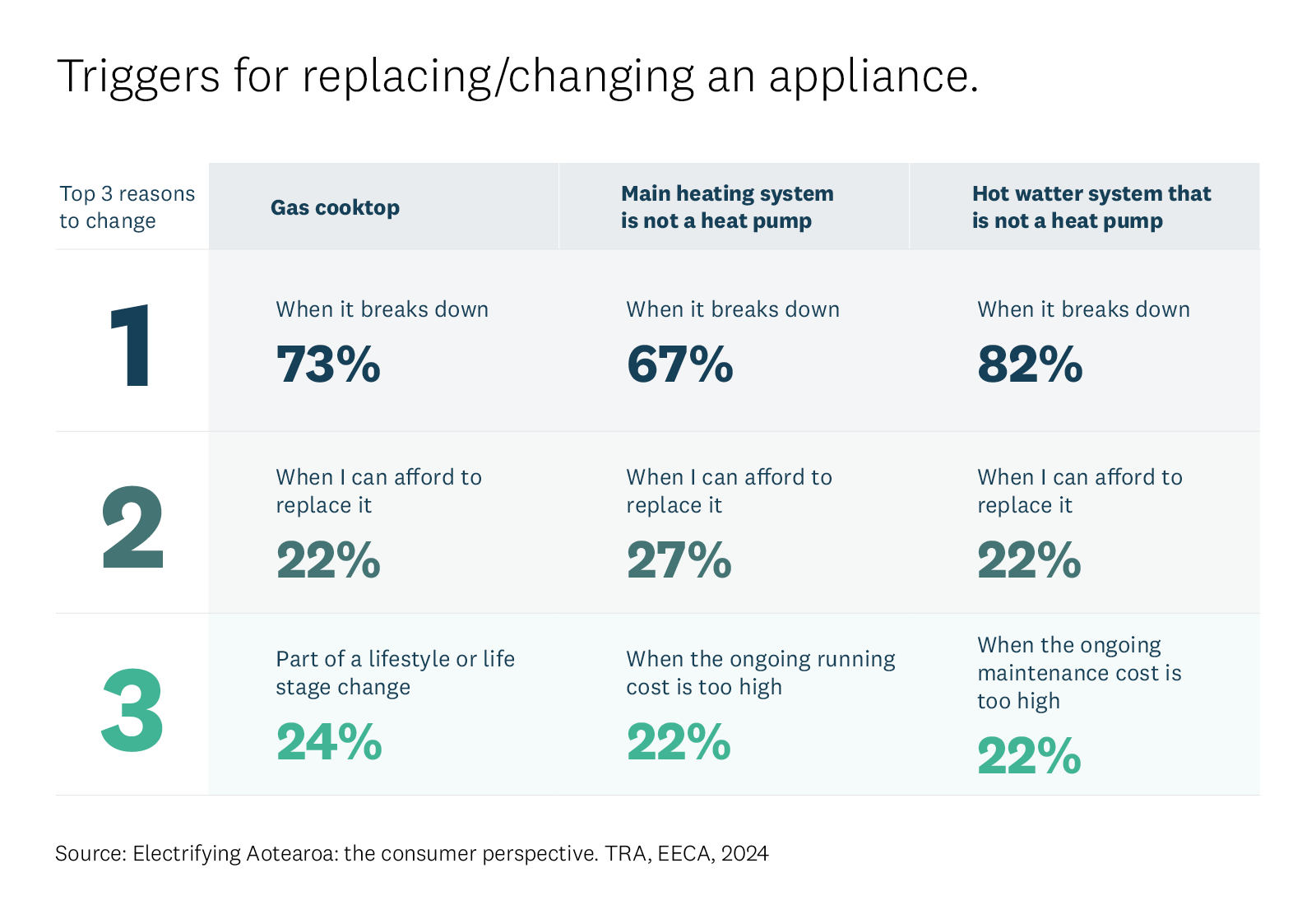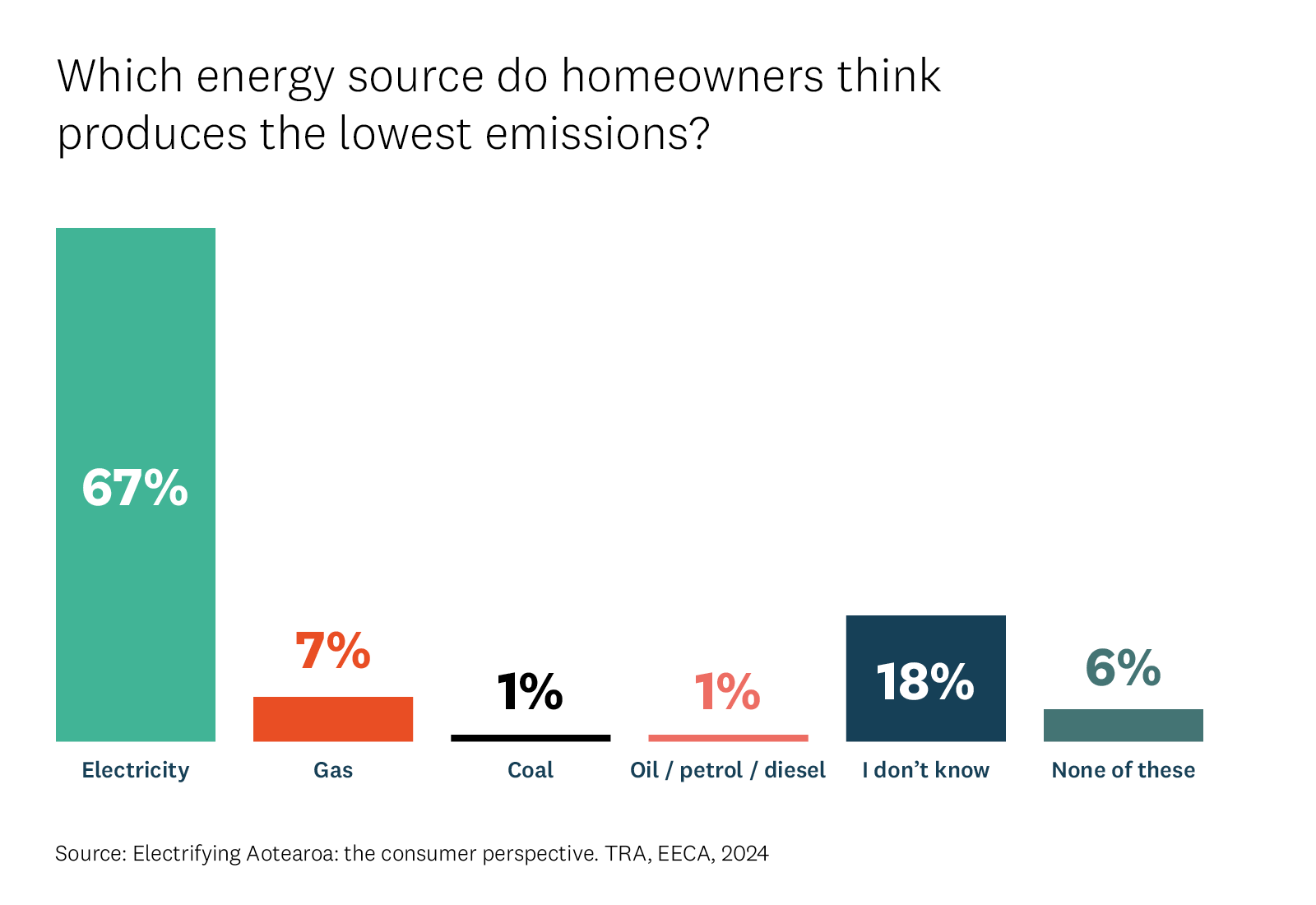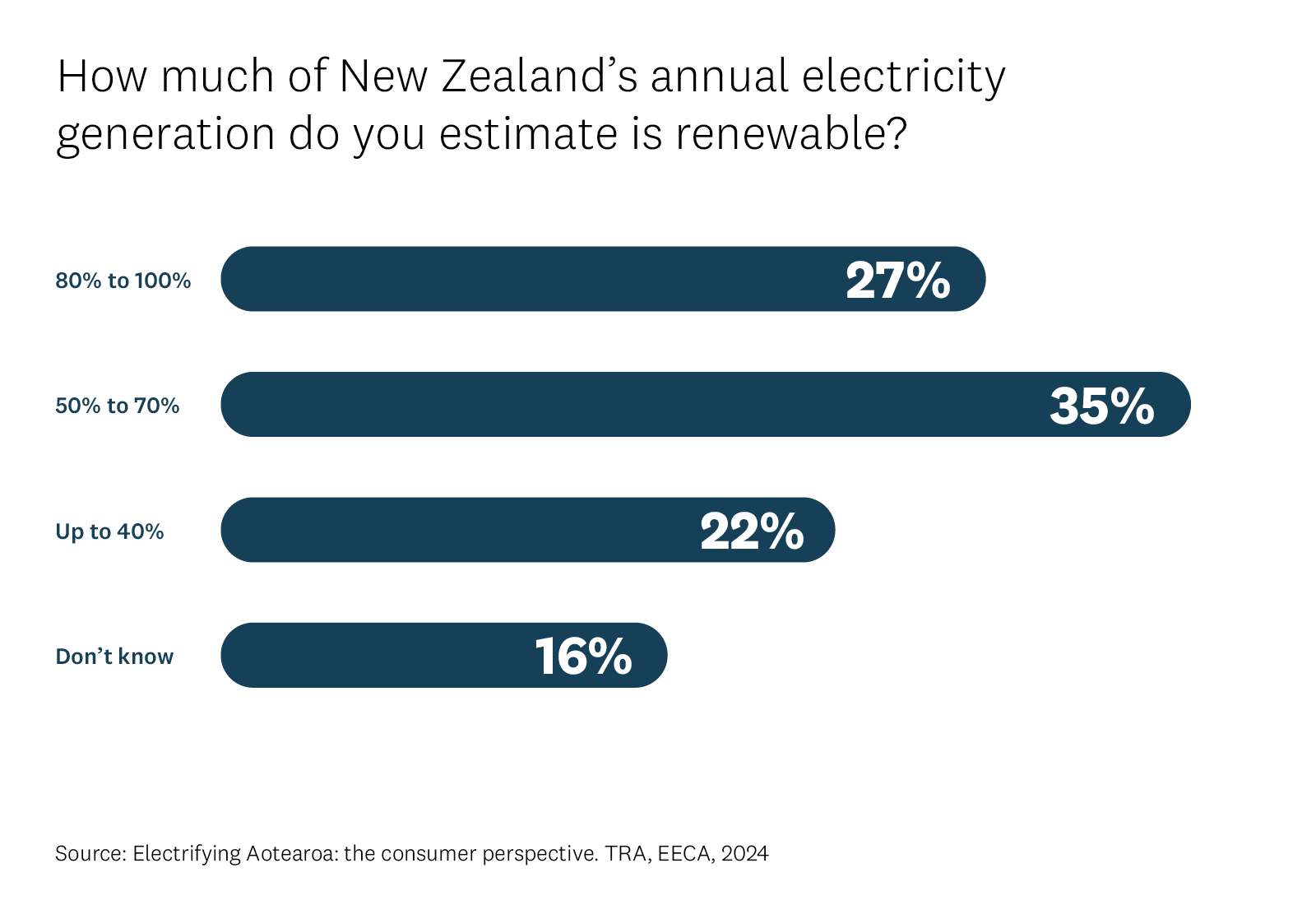Overview
Energy is a vital part of our lives at home, keeping us warm and powering everything from our appliances to hot water.
New Zealand is at a point where household electrification presents an opportunity to reduce energy use, emissions and costs.
EECA set out to understand where New Zealand homeowners are at, and what current motivators and barriers are.
The report, delivered by TRA, is focussed on owner-occupiers, and considers the most efficient electric technologies currently available on the market.
To supplement this research, we commissioned an additional short survey about the use of off-peak electricity plans among both owner-occupiers and renters. Jump to off-peak electricity plan report.
Research objectives
The objective of this consumer survey was to:
- Determine the current stock of appliances/systems in New Zealand households that have the potential to be electrified in a smart way.
- Assess awareness and consideration of smart electrification options.
- Assess triggers and timeframes for change.
- Assess high level motivations and barriers to change.
- Understand general awareness levels of smart/renewable energy.
Energy uses and technologies explored:
- Cooking/induction cooktops
- Heating/heat pumps
- Hot water/hot water heat pumps
- Solar and solar batteries
- EVs and smart chargers
Key findings
New Zealand has an ageing stock of household appliances in owner-occupied houses. At least one-third of non-green appliances are over 10 years old, and over half are at least 6 years old.
Around three quarters of owner-occupier households have reported they are unlikely to switch to greener, electric investment appliances until they reach end-of-life.
New Zealand homeowners reported a mix of fuel sources in their homes. Current ownership of different electric options has been found to vary significantly.
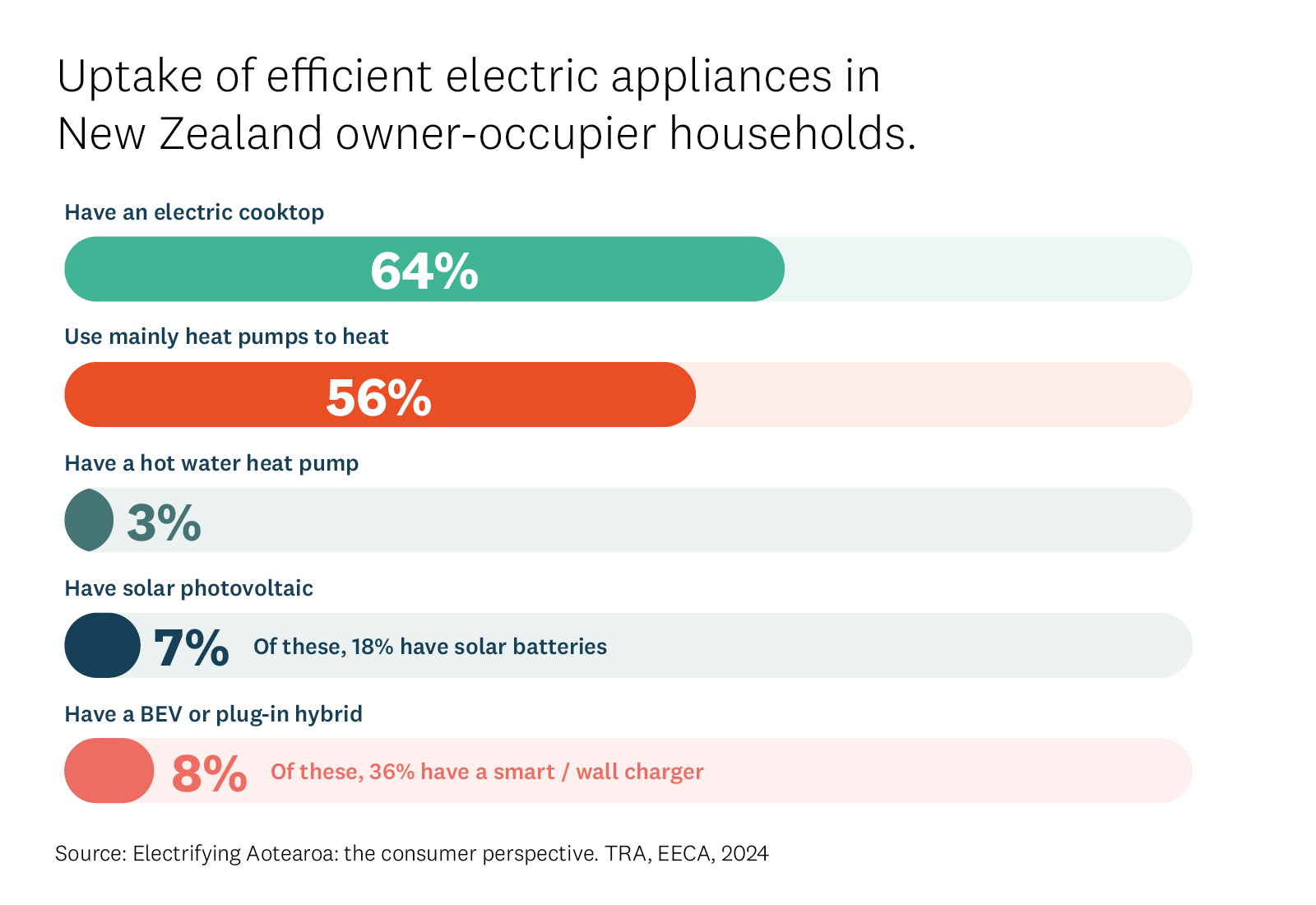
It is not a given that New Zealanders associate electricity with cleaner energy. One-third of homeowners (33%) do not identify electricity as the cleanest energy source out of electricity, gas, coal and oil.
While between 80%-85% of the country’s electricity supply does come from renewable sources, only one-quarter (27%) of homeowners correctly estimated the country’s supply to be this high.
Knowledge and uptake of off-peak plans
To supplement our Electrifying Aotearoa research, we commissioned a short survey about the use of off-peak electricity plans. This research covers a nationally-representative survey sample including renters as well as owner-occupiers.
The survey found that while over three-quarters of new Zealanders are aware of off-peak power plans, just 30% use them.
Next steps
This consumer research will inform our residential electrification work programme.
In the immediate term we will use the insights to bolster the information we provide to owner occupiers, to help with informed decision making at a natural point of replacement.
Read next
-
It pays to go electric
By choosing all-electric home appliances, New Zealanders could save around $1,000+ per year in energy costs. See how the costs stack up.
-
The impact of electric homes
A technical assessment of the energy, economic, and emissions opportunity when electrifying New Zealand households and garages.
-
Hot water heat pumps in the home
Information for homeowners and developers who are considering water heating systems for new builds or to replace existing systems.

